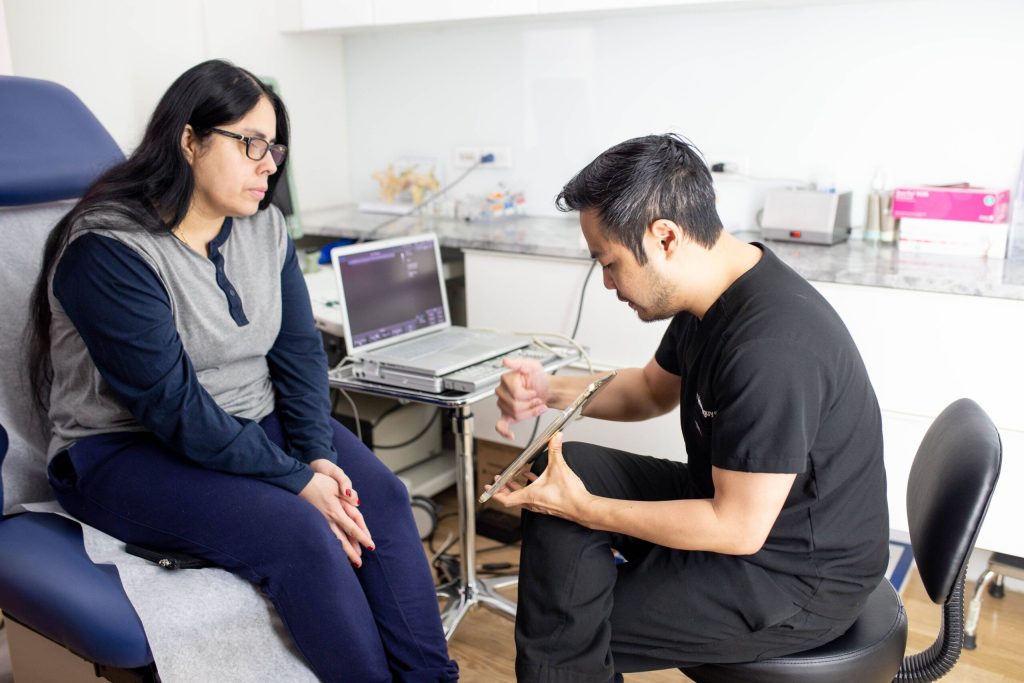What Kind of Doctor Specializes in Veins?
4 min read
Veins are an integral part of our circulatory system, carrying deoxygenated blood back to the heart. However, they can sometimes face issues such as varicose veins, deep vein thrombosis, and chronic venous insufficiency. When such problems arise, it is crucial to seek medical advice from a specialist. But what kind of doctor specializes in veins? In this article, we will explore the different types of doctors who focus on vein-related conditions, their qualifications, and how they can help you.
The Importance of Specialized Care for Vein Health
Before diving into the specific types of doctors, it is important to understand why specialized care for veins is essential. Vein-related issues can lead to severe complications if not treated properly. For example, varicose veins might seem like a cosmetic concern, but they can cause pain, swelling, and skin changes if ignored. Similarly, deep vein thrombosis (DVT) can lead to life-threatening conditions like pulmonary embolism.
Specialists in vein care have extensive training and expertise to diagnose and treat these conditions effectively. They use advanced techniques and tools to provide the best possible outcomes for their patients.
Vascular Surgeons: The Primary Specialists for Vein Conditions
One of the main types of doctors who specialize in veins are vascular surgeons. These medical professionals are trained to diagnose and treat disorders of the vascular system, which includes arteries, veins, and lymphatic vessels. Vascular surgeons undergo extensive education and training, including:
- Medical School: Four years of medical school to earn a Doctor of Medicine (MD) or Doctor of Osteopathy (DO) degree.
- Residency: Five to seven years of residency in general surgery.
- Fellowship: Additional two years of fellowship training in vascular surgery.
Vascular surgeons are equipped to handle a wide range of vein-related conditions, including varicose veins, spider veins, DVT, and chronic venous insufficiency. They perform both surgical and non-surgical procedures to treat these conditions. Some common treatments include sclerotherapy, endovenous laser therapy (EVLT), and vein stripping.
Phlebologists: Vein Care Specialists
Phlebologists are another type of doctor who specializes in veins. Unlike vascular surgeons, phlebologists focus solely on diagnosing and treating vein conditions. They do not perform major surgeries but are skilled in various non-surgical treatments. To become a phlebologist, a doctor typically:
- Completes Medical School: Four years of medical school.
- Undergoes Residency: A residency program in a related field such as dermatology, internal medicine, or general surgery.
- Obtains Certification: Additional training in phlebology and certification from organizations like the American Board of Venous & Lymphatic Medicine (ABVLM).
Phlebologists treat conditions such as varicose veins, spider veins, and venous ulcers using techniques like sclerotherapy, ultrasound-guided foam sclerotherapy, and endovenous thermal ablation. Their specialized training allows them to provide effective treatments with minimal discomfort and downtime.
Interventional Radiologists: Minimally Invasive Vein Treatments
Interventional radiologists are also key players in the field of vein care. These doctors specialize in using imaging technology to diagnose and treat various conditions, including vein disorders. The path to becoming an interventional radiologist includes:
- Medical School: Four years of medical education.
- Residency: A residency in diagnostic radiology, typically lasting five years.
- Fellowship: One to two years of fellowship training in interventional radiology.
Interventional radiologists use minimally invasive techniques to treat vein conditions. They rely on imaging guidance to perform procedures such as catheter-directed thrombolysis for DVT, endovenous laser therapy (EVLT), and radiofrequency ablation (RFA) for varicose veins. These methods offer the advantage of shorter recovery times and reduced risk compared to traditional surgery.
Dermatologists: Addressing Superficial Vein Issues
Dermatologists, primarily known for treating skin conditions, also play a role in vein care, particularly for superficial vein issues like spider veins and minor varicose veins. To become a dermatologist, a doctor must:
- Complete Medical School: Four years of medical training.
- Residency: Three years of residency in dermatology.
- Additional Training: Some dermatologists pursue further training in vein treatment techniques.
Dermatologists treat vein issues using methods such as sclerotherapy, laser therapy, and intense pulsed light (IPL) therapy. They focus on improving the appearance of superficial veins and alleviating associated symptoms.
Cardiologists: Treating Venous Conditions Related to Heart Health
Cardiologists are heart specialists, but they also deal with venous conditions, particularly those related to cardiovascular health. The pathway to becoming a cardiologist includes:
- Medical School: Four years of medical education.
- Residency: Three years of residency in internal medicine.
- Fellowship: Three years of fellowship training in cardiology.
While cardiologists primarily focus on heart health, they also treat conditions like deep vein thrombosis (DVT) and chronic venous insufficiency (CVI) that can impact overall cardiovascular health. They use medications, lifestyle modifications, and minimally invasive procedures to manage these conditions.
Seeking the Right Specialist for Your Vein Condition
Determining the right specialist for your vein condition depends on the specific issue and the treatment required. Here are some tips to help you choose the best doctor:
- Consult Your Primary Care Physician: Start with your primary care doctor, who can assess your condition and refer you to the appropriate specialist.
- Research Specialists: Look for doctors with specific training and experience in treating your vein condition. Check their certifications and patient reviews.
- Ask Questions: When you meet with a specialist, ask about their experience, treatment options, and success rates. Ensure you feel comfortable with their approach.
Conclusion
Understanding what kind of doctor specializes in veins is crucial for seeking the right treatment. Vascular surgeons, phlebologists, interventional radiologists, dermatologists, and cardiologists all play significant roles in vein care. Each type of specialist brings unique skills and expertise to diagnose and treat various vein conditions effectively. By consulting the right specialist, you can ensure that you receive the best possible care for your vein health, leading to better outcomes and improved quality of life.




